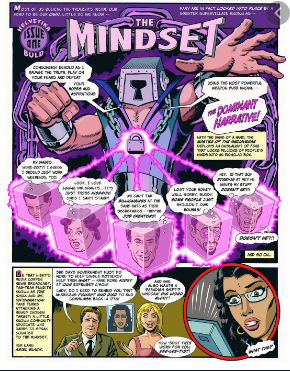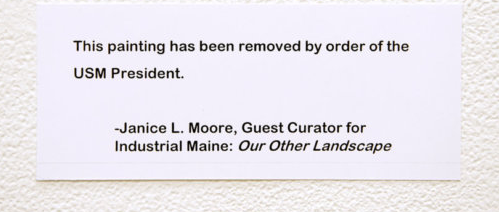The videotapes show that “the questioning [of the Central Park Five] was respectful, dignified, carried out according to the letter of the law and with sensitivity to the young age of the men. . . . If you spot the first sign of a coercive questioning, don’t hesitate to write to me and point it out.”
— Former ADA Linda Fairstein’s Letter to the Editor of the NY Law Journal, July 31, 2018.
The Central Park Five, if you remember, were five teenagers who were convicted, based entirely on confessions, of the brutal rape of a young woman in Central Park. After years in prison, they were exonerated by the confession of a serial rapist, which, unlike the Fives’ confessions, was corroborated by DNA. After a dozen more years of litigation, the Five were awarded $41 million and the federal court ordered the full record to be made public. Accordingly, the NYC Law Department has just now started a website which, if you have the patience of a saint, will grudgingly let you see some of the documents in the case.
Linda Fairstein, who was head of the Manhattan DA’s Sex Crimes Unit at the time of the trials, insists that the unsealed record will “confirm the original verdict.”
“The confessions were not coerced,” she explains, or else the trial court wouldn’t have found them admissible. The videotapes show that “the questioning was respectful, dignified, carried out according to the letter of the law and with sensitivity to the young age of the men. . . . If you spot the first sign of a coercive questioning, don’t hesitate to write to me and point it out.”
Plus, she says, she wasn’t the prosecutor. “Instead, I was an eyewitness to many of the events at the police stationhouses throughout 36 hours when the statements were obtained.”
Of course the videos won’t show coercion. Because they won’t show the interrogation. Until recently, the cops never called the video tech until the suspect was “ready to make a statement.” Not only were these “men of young age” questioned for hours overnight before their videotaped statements, two were taken to the crime scene by mere eyewitness Fairstein, thereby feeding them information that could then be used as proof that they were there.
Here’s what the late Judge Titone of the Court of Appeals had to say about Fairstein’s involvement in the questioning of Yusuf Salaam, one of the Five:
At a little after 10:30 p.m. on the day after the highly publicized crime occurred, Detective Taglioni and three other detectives went to defendant’s home and “asked” him and his two companions to come to the police station for questioning. Defendant “voluntarily” accompanied the detectives, while his sister called an aunt who lived near the police station, Marilyn Hatcher, and asked her to go to defendant’s aid. Hatcher left for the police station with her fiancé almost immediately, arriving at approximately 11:10 p.m. By that time, defendant had arrived at the police station and had been taken to the Sex Crimes Office for questioning.
A Detective McKenna read defendant the Miranda warnings and obtained a waiver of his rights just as Hatcher reached the police station and told an officer that she wanted to see her nephew. After being asked to wait for a few minutes, Hatcher was told by Detective Taglioni that defendant was currently being questioned, that she would not be permitted to see him because she was neither a parent nor a guardian and, finally, that defendant would not even be given the information that “some of his family was there.”
Approximately 15 minutes later, David Nocenti, a United States Attorney who happened to be defendant’s “Big Brother”, arrived. Having learned from Hatcher that she had been prevented from seeing defendant, Nocenti approached the desk officer and informed him that he was a friend of defendant’s family as well as an attorney.
Nocenti was asked to wait while Assistant District Attorney Fairstein, the head of the Sex Crimes Prosecution Unit, was informed of his presence. Fairstein conferred with one of the detectives who was involved in defendant’s questioning and ascertained that defendant had already made a number of inculpatory statements. Fairstein did not suggest that the questioning should be suspended because of Nocenti’s presence. Instead, she approached Nocenti, told him that he had no right to be at the precinct and questioned his ethics as an attorney.
Significantly Nocenti had made it clear that he was there not in his capacity as an attorney, but rather was there as a friend of the family who wanted to aid defendant. At 11:40 p.m., Fairstein told Nocenti that he could not see defendant and that he would have to leave the premises because he was neither an immediate family member nor an attorney representing the suspect. As in the case of Marilyn Hatcher, defendant was not informed that Nocenti had come to the precinct to see him.
Within minutes, defendant’s mother arrived and encountered Hatcher and Nocenti, who were waiting outside the precinct. The entire group then reentered the precinct and informed the desk officer that defendant’s mother was now there. After waiting for a few minutes, Fairstein and another Assistant District Attorney spoke with defendant’s mother and told her that she would be permitted to see him after the questioning had been completed.
After conferring with Nocenti outside, defendant’s mother went back inside, this time demanding that she be permitted to see her son immediately. It was then that she revealed for the first time that defendant was 15, not 16 as the authorities had previously been led to believe.
Apparently caught off guard, Fairstein bickered with defendant’s mother and Detective Taglioni for a few minutes before deciding to call a halt to the interrogation. Even then, the questioning did not immediately stop. Instead, it merely shifted to the subject of defendant’s age and how it had been misrepresented on his identification card.
In all, defendant was questioned for an hour and a half before the interrogation was terminated. During that entire period, unbeknownst to him, there were related and/or concerned adults who were present and could have provided him with helpful counsel had they not been denied all access to him. What emerges from these facts is a picture of law enforcement officers who were so anxious to extract a full and complete confession that they did everything within their power to keep this youthful suspect isolated and away from any adults who might interfere with their exploitation of “the awesome law enforcement machinery possessed by the State” [. . . .]
In this regard, the majority’s suggestion that the police “reasonably believed that they were dealing with an adult” is fallacious. Even assuming, as the police justifiably did, that defendant was 16 at the time he was questioned, it cannot be said that he was actually an adult in any realistic sense of that term. To be sure, our statutes would permit him to be tried as if he were an adult for the serious crimes of which he had been accused . . . . None of these statutory provisions, however, negate the elemental fact that defendant was, at most, 16 years old and, under our State’s law, an infant for most purposes. . . .
[D]efendant had neither the maturity nor the experience to protect his own rights in the inherently coercive, police-dominated atmosphere in which he found himself. . . . [H]e should have been permitted to establish “contact” with the adults who were waiting outside to see him and “who might be able to provide him with assistance or advice” regarding the seriousness of the situation and the need for consultation with counsel before making statements that would irrevocably prejudice his legal position.
Furthermore, there can have been no other reason for the decisions of Detective Taglioni and Assistant District Attorney Fairstein to prevent defendant’s aunt, “Big Brother” and mother from speaking to him other than to capitalize on his youth and isolation and to assure that he did not receive aid and advice from the supportive adults who were in a position to retain counsel for him. Indeed, it is apparent that the authorities’ purpose was to obtain the evidence they wanted before permitting defendant to speak with an adult who might interfere with the investigators’ absolute control over his person and environment. In other words, “the police intentionally deprived the defendant of access to his family in an effort to obtain a confession”
Contrary to the majority’s assertion, the foregoing conclusion requires no impermissible inference drawing. Assistant District Attorney Fairstein made the authorities’ motives in this regard explicit when she told defendant’s mother that she would not be permitted to see her son until after the detectives were finished with their questioning. This declaration that defendant would continue to be isolated despite the presence of his mother at the police station belies the suggestions made earlier to Hatcher and Nocenti that the only reason they were being denied access was that neither was a parent or a person who had come to provide legal representation.
Finally, defendant’s need for an adult perspective in this situation is highlighted by the cynical manner in which the detectives manipulated the information they gave him in order to induce a confession. The detectives told defendant that he had been implicated in the crime by others but that it was possible that he could still be released “depending on what [he] ha[d] to tell [them].” When defendant balked, the officers told him, falsely, that they were able to lift fingerprints from the victim’s jogging pants. At that point, defendant, perceiving no alternative, acceded to the police pressure and began giving the inculpatory statements that had subsequently convicted him.
Manifestly, an experienced adult could have disabused defendant of the naive notion that there was anything he could say to police that would result in his release at this stage in the investigation. Certainly, a knowledgeable adult—or an attorney retained by such an adult—could have alerted him that he could not extricate himself from the most serious charges merely by denying having directly participated in the rape. In any event, defendant’s aunt, “Big Brother” or mother could have helped this 15–year–old suspect to appreciate the value of waiting until after he had spoken to an attorney before committing himself to the inculpatory statements he was in the process of making.
In sum, other than an undisguised intention to exploit this defendant’s youthful vulnerability, there was no justification for the authorities’ actions in preventing defendant from gaining access to the helpful counsel of the supportive adults who had gathered at the police station to assist him. Accordingly, I would hold that the statements the police obtained as a result of their overreaching ought to have been suppressed. Such a holding is necessary, in my view, both to deter the abuse of police authority and to protect the right to counsel of those who are too young and naive to appreciate its importance. Because the analysis and holdings of the courts below, and of the majority here, fail to give adequate weight to the rights of this unrepresented juvenile, I dissent from the decision to uphold his conviction.
People v. Salaam (NY 1993)(Titone, J., dissenting)
Considering that Fairstein has spent the last 20 years writing novels with titles like, “Likely to Die,” “Lethal Legacy,” “The Bone Vault,” “Hell Gate,” and others suitable for killing time at the airport, it’s not surprising that she edits out whatever doesn’t contribute to her story line. Prosecutors have always believed in fact fluidity.
ADDENDUM: The controversy over Fairstein’s fiction: Being Fair to Fairstein.































